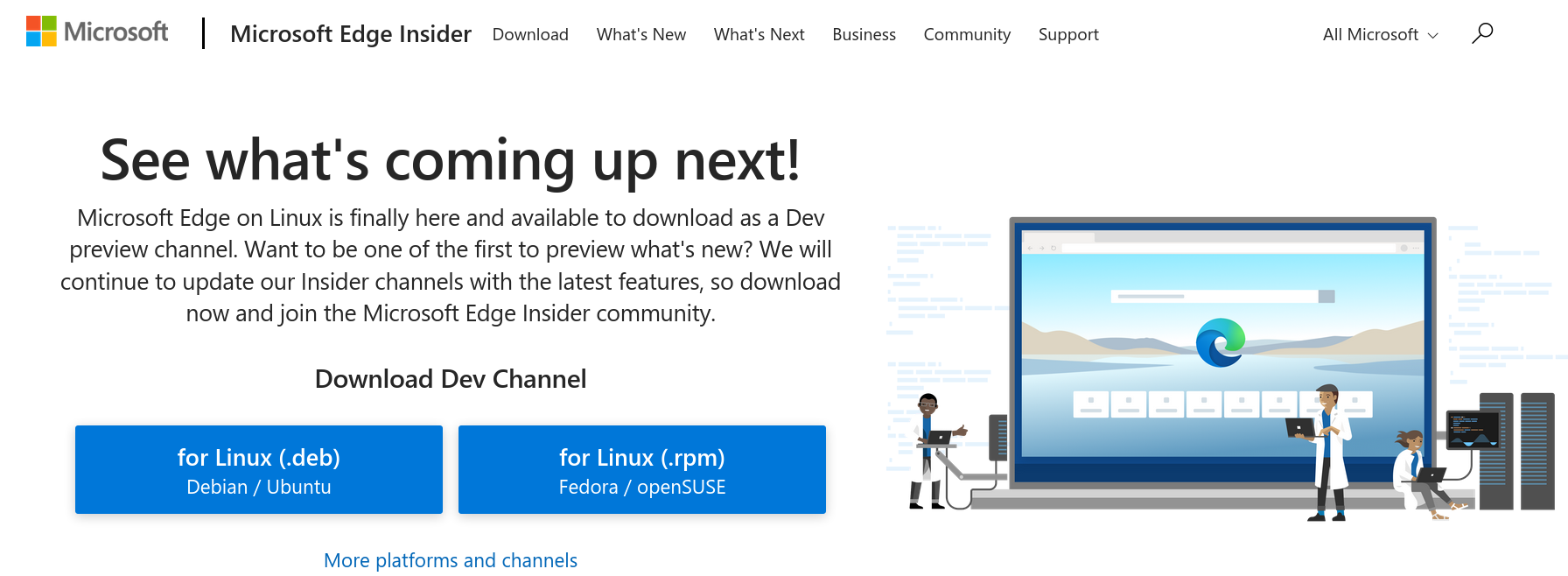Microsoft has just announced that Edge for Linux is available for download on channel Dev, allowing users of the platform to test the Chromium-based browser.
“With this release, Microsoft Edge is now available for all major platforms για επιτραπέζιους και φορητούς υπολογιστές. Είμαστε ιδιαίτερα ενθουσιασμένοι που προσφέρουμε στους web developers την ίδια συνεπή και ισχυρή web πλατφόρμα και tools developers like on macOS or Windows, so you can build and test in your preferred environment and be sure of the experience your customers will have on other devices. For security researchers, we are now also accepting submissions for the Microsoft Edge Bounty Program on Linux,” Microsoft says.
The first preview versions of Microsoft Edge for Linux can be installed on Ubuntu, Debian, Fedora, and OpenSuSE distributions. Microsoft says Dev versions for Linux will be updated according to the company's standard calendar, which means new releases will be released every week.
Microsoft updates the Canary channel daily, while Dev receives updates on a weekly basis. Beta and fixed versions are updated every six weeks.
"There are two ways to get started with Microsoft Edge on Linux. The simplest approach is to download and install a .deb or .rpm package directly from the Microsoft Edge Insider website. This will set up your system to receive future automatic updates. If you prefer, you can also install Microsoft Edge from the Linux Software Repository using the standard package management tools in your distribution, ”says Microsoft.
With the Linux version, Microsoft Edge is now available on all major operating systems and can be installed on Windows 7, Windows 8, Windows 8.1, Windows 10, macOS and Linux.





